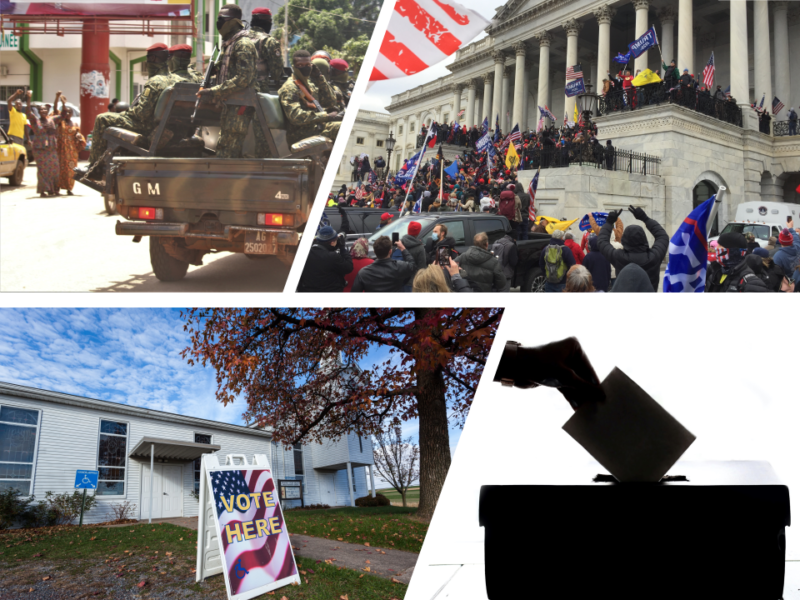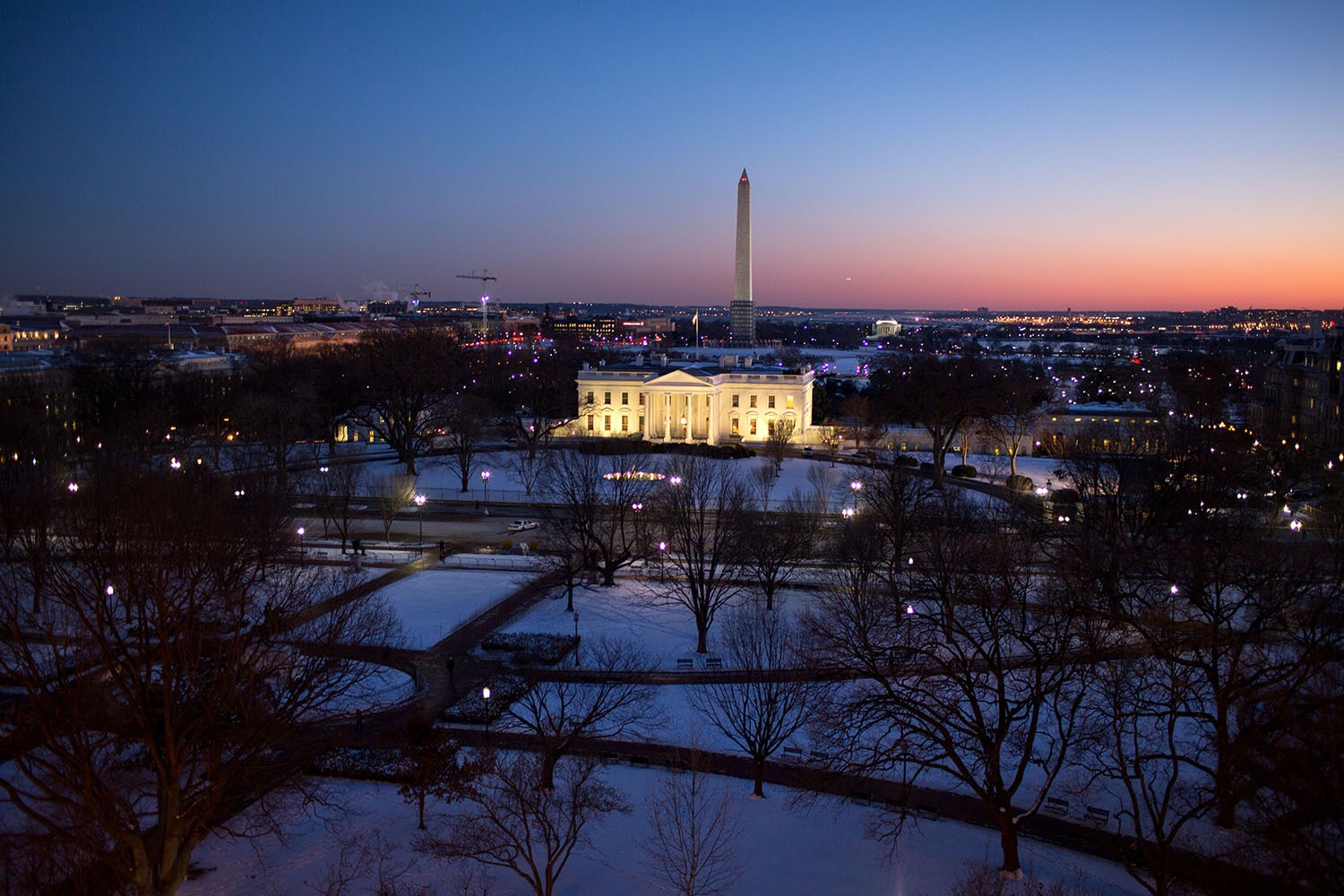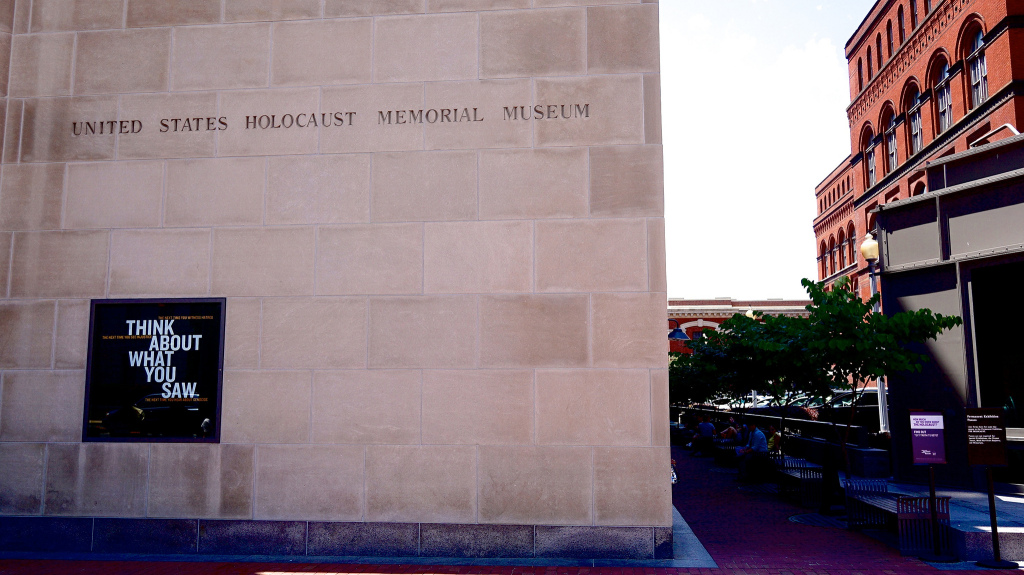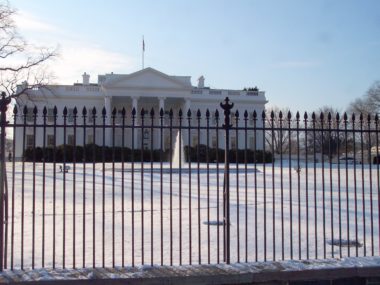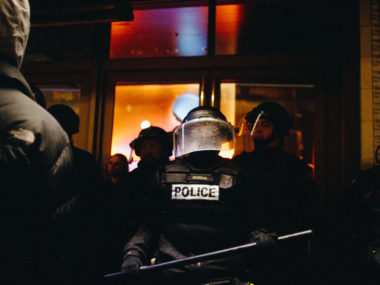Guest post by Josef Woldense and Jun Koga Sudduth
For Russia’s President Putin, the invasion of neighboring Ukraine was supposed to deliver a swift victory. But things have not turned out as planned. The invasion has been met with stiff resistance, unprecedented economic sanctions, and increasing domestic discontent. Even worse for Putin, there are now serious questions about whether someone within his regime will stage a coup and remove him from power. But just as he has sought to protect himself from potential financial sanctions, Putin seems to have anticipated this threat from within. He did this not because he has unique foresight, but because coups are something all autocrats face.
Coups are not just isolated events—something that happens on a particular day, where the conspirators either succeed or fail. Rather, they are a close cousin of elections. Both are mechanisms for the transfer of power with one mostly found in dictatorships and the other in democracies. Shadow an elected official as they perform their daily tasks, and it becomes quickly apparent that the policies they advocate for, the people they meet with, and the fundraisers they stage are all geared towards the goal of winning the next election. Far from mattering only on the day when citizens cast their vote, the influence of elections is ever-present in democracies and profoundly shapes what elected officials do on a day-to-day basis.
Coups are similarly profound in shaping what happens inside dictatorships. At its simplest, the coup d’etat is a tool for elites within the regime—often involving the military—to forcefully remove the ruler from power. Because conspirators organize in secret, rulers do not know who they are and when they are likely to strike. This secrecy places dictators in a constant state of vigilance. Elites and dictators may be allies, but their relationship is fraught with tension because it is overshadowed by the constant threat of betrayal.
This simmering tension manifests in the ruler’s day-to-day actions. One of the most obvious places is the military, the regime’s coercive arm that rulers try to remold in an effort to coup-proof their rule. Dictators will deliberately duplicate military branches and spy agencies so that each serves as a check on the other. The goal is to foment distrust by creating redundant but competing chains of commands, which makes it more difficult for any one of them to stage a coup, let alone succeed if they were to launch one. Putin apparently was doing just that. Yet, for the casual observer, the coup’s impact on the design of the military likely goes unnoticed. Why? Because the more successful rulers are in reshaping the coercive apparatus, the less likely we are to see a coup in the first place.
Regime elites are another target because they too can undermine the ruler. Their source of power comes from the informal groups that develop among officials as they get to know each other and bond over time. When elites are able to amass a strong following, the cliques they lead become a formidable threat. From the ministry of finance to the ministry of defense, clique members occupy different seats within the state apparatus, which they can leverage against the ruler to expand their influence or even stage a coup. One way to weaken cliques is to periodically shuffle officials. By frequently rotating them within the regime, rulers divorce officials from one another and rob them of the opportunity to form close ties. It seems Putin has taken the extra step of completely separating his economic and political elites for that same purpose. In so doing, elites are kept in check because their cliques are not allowed to fester.
Prepare as they may, there are limits to the ruler’s defenses. For instance, dictators often establish legislatures and parties to appease the elite. One may think of these institutions as carrots—they discourage elites from rebelling by formally recognizing their power within the regime. The problem is that even when these institutions work as intended, they still leave some people out. Especially for those marginalized within the regime looking to change the status quo, the risk of them launching a coup does not appear to be mitigated by legislatures and parties. A similar dynamic plays out during times of war. Even in the face of coup-proofing, when bogged down in an intractable war initiated by the ruler, it is not the upper elite, but battle fatigued middle-and low-ranked officers who are likely to stage a coup.
When coups are successful, incoming leaders tend to take advantage of their momentary victory. Rivalries among the elite abound and new leaders often see the period immediately after the coup as an opportune moment to dispatch potential rivals and replace them with more loyal followers. Interestingly, the same is not necessarily the case in the wake of failed coups. Here, rulers avert the attempt to displace them and—because the ones who launched the defunct coup outed themselves—can even punish the transgressors. Yet, the plotters and sympathizers who did not actively participate the day the coup was launched can quietly retreat back into the sea of government officials and remain hidden. With their identity unknown, purges are not particularly effective and so tend to elicit different responses from rulers.
The threat of coups deeply impacts how rulers and their militaries and elites interact with each other. Much of this happens away from the public eye and yet is fundamental to the way regimes operate. In Russia, even amid the war in Ukraine, the prospects for a coup against Putin is ultimately a question of whether his past political schemes are able to keep his elites in check as the cost and political pressure keeps mounting.
Josef Woldense is an Assistant Professor in the Department of African American and African Studies at the University of Minnesota, Twin Cities. Jun Koga Sudduth is a Senior Lecturer (Associate Professor) of Government and Public Policy at the University of Strathclyde.

